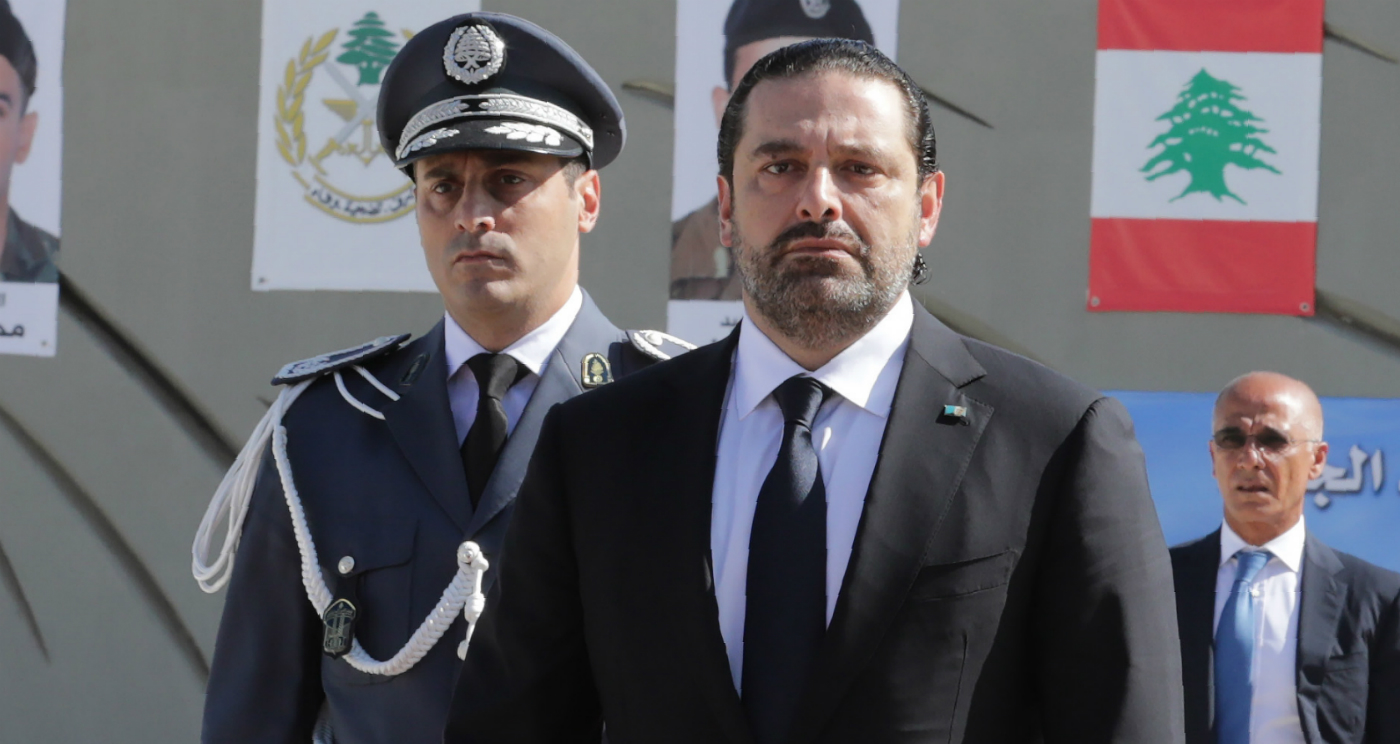Lebanese PM Saad al-Hariri ‘suspends’ shock resignation
U-turn comes after he announced he was quitting in Saudi Arabia and then disappeared

A free daily email with the biggest news stories of the day – and the best features from TheWeek.com
You are now subscribed
Your newsletter sign-up was successful
Lebanon’s Prime Minister Saad al-Hariri has “suspended” his resignation in Beirut after almost three weeks of political turmoil and claims that he was held against his will in Saudi Arabia.
Hariri offered his resignation to President Michel Aoun today, but said that he was asked to “put it on hold ahead of further consultations”.
“I have agreed to concede to this request in the hope it will provide a serious opening for responsible dialogue so that we can address the issues of dispute and the repercussions it has had on our Arab brothers,” Hariri said, according to the Financial Times.
The Week
Escape your echo chamber. Get the facts behind the news, plus analysis from multiple perspectives.

Sign up for The Week's Free Newsletters
From our morning news briefing to a weekly Good News Newsletter, get the best of The Week delivered directly to your inbox.
From our morning news briefing to a weekly Good News Newsletter, get the best of The Week delivered directly to your inbox.
He returned to Lebanon last night after spending two weeks in Riyadh, before making brief trips to the United Arab Emirates, France, Egypt and Cyprus.
“Aoun and much of the political leadership accused Riyadh of detaining Hariri and forcing him to resign as part of Saudi Arabian efforts to escalate pressure on Iran, its regional rival,” says the FT.
Shortly after his resignation, Hassan Nasrallah - the head of Hezbollah, Lebanon’s Iranian-backed political party - suggested Hariri was not a free man, and that his statement had been dictated by Saudi Arabia.
Questions remain over whether Hariri’s resignation will stand or whether he might withdraw it. A resignation brings down the government, and the president then has to engage in consultations to select a new prime minister to form a cabinet.
A free daily email with the biggest news stories of the day – and the best features from TheWeek.com
“In Lebanon, divided for more than a decade between a pro-Saudi camp and a Tehran-backed alliance, that process typically takes months of political wrangling,” says The Daily Telegraph.
-
 Local elections 2026: where are they and who is expected to win?
Local elections 2026: where are they and who is expected to win?The Explainer Labour is braced for heavy losses and U-turn on postponing some council elections hasn’t helped the party’s prospects
-
 6 of the world’s most accessible destinations
6 of the world’s most accessible destinationsThe Week Recommends Experience all of Berlin, Singapore and Sydney
-
 How the FCC’s ‘equal time’ rule works
How the FCC’s ‘equal time’ rule worksIn the Spotlight The law is at the heart of the Colbert-CBS conflict
-
 Will increasing tensions with Iran boil over into war?
Will increasing tensions with Iran boil over into war?Today’s Big Question President Donald Trump has recently been threatening the country
-
 Epstein files topple law CEO, roil UK government
Epstein files topple law CEO, roil UK governmentSpeed Read Peter Mandelson, Britain’s former ambassador to the US, is caught up in the scandal
-
 Iran and US prepare to meet after skirmishes
Iran and US prepare to meet after skirmishesSpeed Read The incident comes amid heightened tensions in the Middle East
-
 Which way will Trump go on Iran?
Which way will Trump go on Iran?Today’s Big Question Diplomatic talks set to be held in Turkey on Friday, but failure to reach an agreement could have ‘terrible’ global ramifications
-
 Israel retrieves final hostage’s body from Gaza
Israel retrieves final hostage’s body from GazaSpeed Read The 24-year-old police officer was killed during the initial Hamas attack
-
 China’s Xi targets top general in growing purge
China’s Xi targets top general in growing purgeSpeed Read Zhang Youxia is being investigated over ‘grave violations’ of the law
-
 Panama and Canada are negotiating over a crucial copper mine
Panama and Canada are negotiating over a crucial copper mineIn the Spotlight Panama is set to make a final decision on the mine this summer
-
 Iran unleashes carnage on its own people
Iran unleashes carnage on its own peopleFeature Demonstrations began in late December as an economic protest